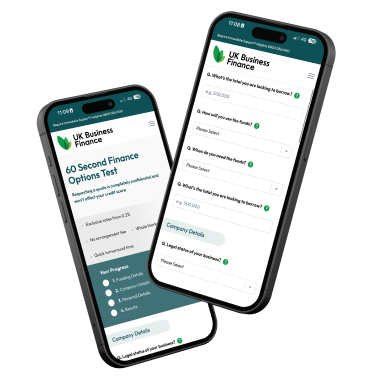Property
Commercial finance for property businesses
The property sector is closely linked to economic stability in the UK and with much wealth and investment tied up in property its importance and significance to the economic climate is clear.
The pandemic-driven change in the way we live and work has had a direct impact on the property sector, however. One example is the commercial property market, which suffered during Covid as bricks and mortar retail outlets closed and office blocks were no longer occupied.
To help property-related businesses survive the tough times and thrive in the good, access to tailored finance solutions is crucial. It allows for growth with the confidence that cash flow is stable and balance sheet assets are accessible without a huge capital outlay.
UK Business Finance can facilitate access to tailored finance solutions for property sector businesses. We are commercial finance brokers rather than lenders and know the criteria of all the lenders in the UK.
Challenges facing the property sector
Reduced demand for retail and office space
Commercial tenants are demanding more flexibility from office and retail leases following the work-from-home movement and significant growth of online shopping in 2020. Although some organisations have brought their staff back in-house, employees are also carefully considering their work/life balance, which could continue to impact commercial landlords.
Increasing interest rates and costs
Consistent rises in interest rates have made property purchases a more expensive prospect for residential and commercial buyers. Increased operational costs are also jeopardising healthy cash flow and creating instability for some property-related firms.
Investment in digital solutions
The cost of new digital and technological solutions that offer agility and more reliable data may seem prohibitive for smaller organisations in the property sector. It is important to know, however, that these types of purchases can be made flexibly and affordably.
Finding finance for property-related businesses
Having guidance on the types of finance that support property-related businesses and help in accessing them is crucial in a rapidly changing market. UK Business Finance are highly experienced commercial finance brokers who conduct whole-of-the-market searches to find the best funding.
This might be invoice financing, for example, which is based on the value held in a sales ledger, or commercial property portfolio mortgages that make property management and administration easier.
Commercial finance for the property sector
Invoice finance
Two main forms of invoice finance can provide property-related businesses with a consistent source of working capital. Factoring may be a good option if the business is finding payment collection a problem. Invoice discounting is a similar form of finance, but addresses the need for confidentiality where that is required.
Commercial property finance
A commercial investment property mortgage is just one finance option for businesses intending to rent out property. For buy-to-let investors, a property portfolio mortgage may be the best option.
Asset finance
Asset finance can be used for hard assets or soft assets such as fixtures and fittings or office software. Hire purchase is one form of asset finance that can be useful if the business wants to own the asset at the end of the agreement. Otherwise, leasing can keep cash flow predictable and offers flexibility once the monthly instalments are paid.
Applying for property sector finance
UK Business Finance can help you secure the right type of property sector funding. We are commercial finance specialists with extensive experience in helping property-related and real estate businesses fund new projects and stabilise cash flow.
- We do not require you to sign an exclusive contract to use our services
- We offer quotes for secured loans, unsecured loans, invoice finance, asset finance, vehicle finance, and commercial mortgages
- Our services are free of charge to you
Please contact one of our team to find out more about the different types of property sector finance and how we find the best solution for you.
How we help other Sectors
Contact us for more information
- Fully Independent
- Whole Market Access
- Matchmaking Process







